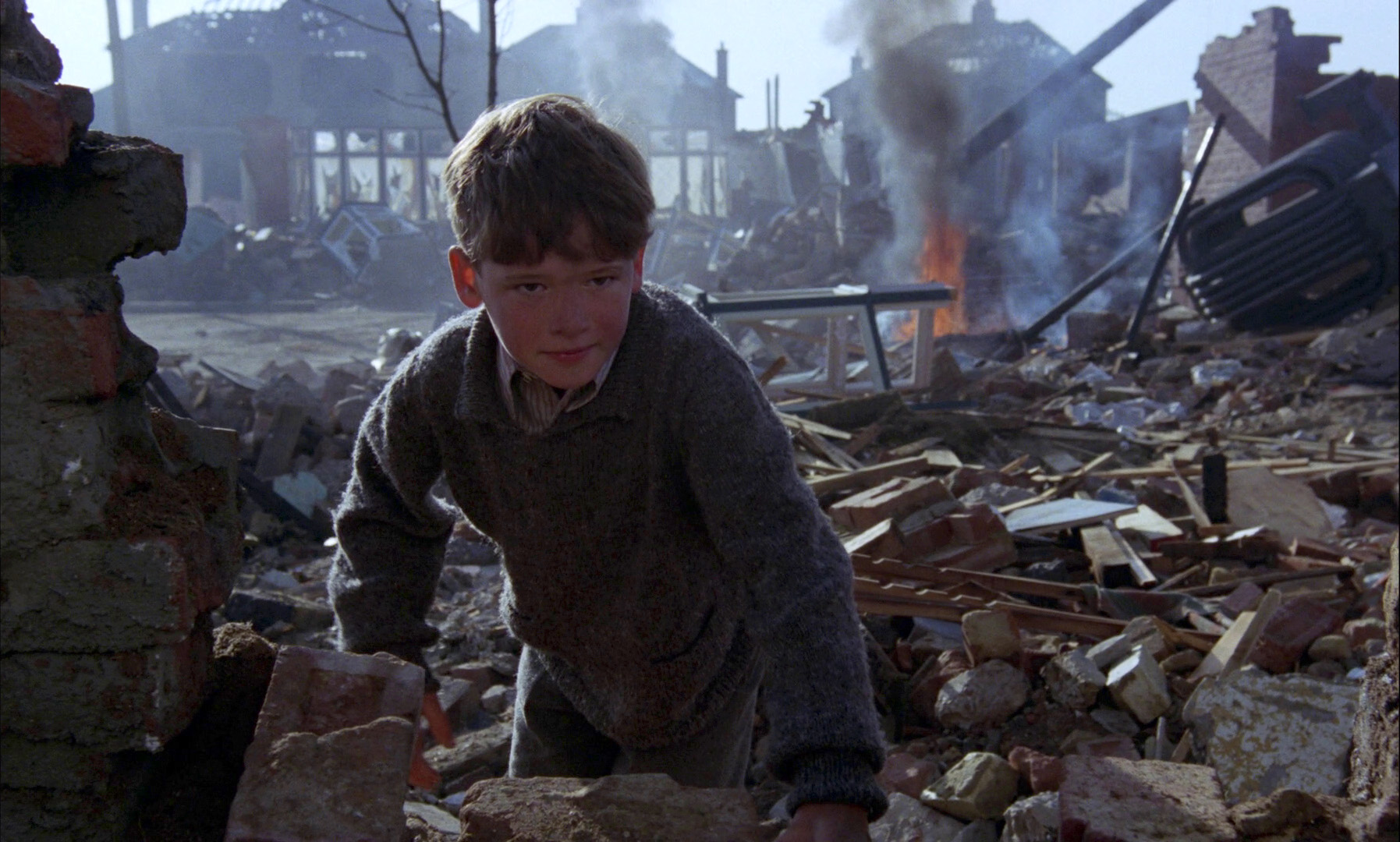Directed and written by John Boorman, the 1987 film presents World War II as a life-altering adventure for young protagonist Billy Rowan.
Few movies about World War II focus explicitly on the generation of children who endured the conflict. An exception is Hope and Glory, released in 1987 and written, produced, and directed by John Boorman. Inspired by Boorman’s own youth, the film provides a semi-autobiographical account of what it was like to grow up in wartime England, particularly during the Blitz—the Luftwaffe’s extended night raids that pummeled London from September 1940 through May 1941.
When the war began in September 1939, Boorman was six years old—just three or so years younger than the film’s protagonist, Billy Rowan (exuberantly portrayed by Sebastian Rice-Edwards). Key supporting characters include Billy’s mother, Grace (Sarah Miles); father, Clive (David Hayman); 16-year-old sister, Dawn (Sammi Davis); and grandfather, George (Ian Bannen). In broad outline, Hope and Glory is a comedy, though not without moments of poignant drama. Young Billy generally finds the war to be a marvelous adventure—especially the frequent intervals during which he and a band of friends gleefully smash the few surviving items from neighborhood homes destroyed in the raids.
Many plot points are predictable. The father goes off to war; the mother attempts to hold the family together; the older sister finds early romance—and an unexpected pregnancy—because in wartime, the usual restraints do not seem to apply. Eventually, the Rowan home is destroyed itself (although in an ordinary house fire, not in an air raid), and Grace Rowan must take her brood and move in with her father, who, inevitably, turns out to be an exasperating but lovably eccentric curmudgeon.
But Hope and Glory’s charm and effectiveness lie in the care with which its characters are drawn and the unexpected uniqueness of its many wartime episodes, as when a German fighter pilot bails out of his damaged plane. He parachutes gracefully into Billy’s neighborhood, where he nonchalantly lights a cigarette and waits for local law enforcement to pick him up; to the crowd of civilians gathered to see him, he’s a figure not of fear but of fascination and even glamour. As for the film’s ending, it is so perfect, in terms a 10-year-old would appreciate, that it could hardly be improved upon.
But the scene that stayed with me, long after I saw the movie, occurs near the beginning. It portrays a cloudless Sunday morning; the neighborhood fathers are busy trimming their lawns with push-reel mowers. Billy is absorbed in play with toy cowboys and a medieval knight—who suddenly encounters the magician Merlin. “Then something even more extraordinary happened,” interjects the narrator, an adult Bill (played in an uncredited role by Boorman himself). “All of the Sunday lawnmowers suddenly stopped.” Everyone pauses to hear a broadcast announcement from Prime Minister Neville Chamberlain, who formally proclaims, as if reading a business contract, that the Germans have rejected an ultimatum to abandon their invasion of Poland, “and that consequently, this country is at war with Germany.”
At once a test of the air raid warning system occurs, provoking momentary alarm. Then everyone returns outdoors to marvel that a war could have broken out on such a splendid morning. “A few lawnmowers started up again,” says the narrator, “but they didn’t ring true somehow. Nothing would ever be the same again.”
It’s that last line that haunts me. Aside from Chamberlain’s announcement and the fleeting false alarm, nothing at all has happened—and, as the film makes clear, nothing would happen for months. Yet nothing would ever be the same again.
How often life is like that. A perfectly healthy person visits a doctor and discovers, in stunned amazement, that they have a potentially fatal disease. They depart, still in good health; serious symptoms may lie months ahead, yet nothing will ever be the same again. An argument breaks out between a husband and wife—superficially, one that’s no different from many others. Yet, by its end, something in their relationship has changed forever, at one level almost indiscernible and at another unmistakable. Divorce might lie years in the future; indeed, it might never come. Yet nothing will ever be the same again.
The best war movies—like the best films in general—transcend their specific subject matter. Hope and Glory has much to say about life in wartime Britain, yet it also has much to say about life, full stop. And perhaps no single aspect is so powerful as its simple evocation of the way the world, in an instant, can change forever. It was true for young Billy and his family. Sooner or later, it is true for all of us. ✯
This article appeared in the June 2021 issue of World War II.





